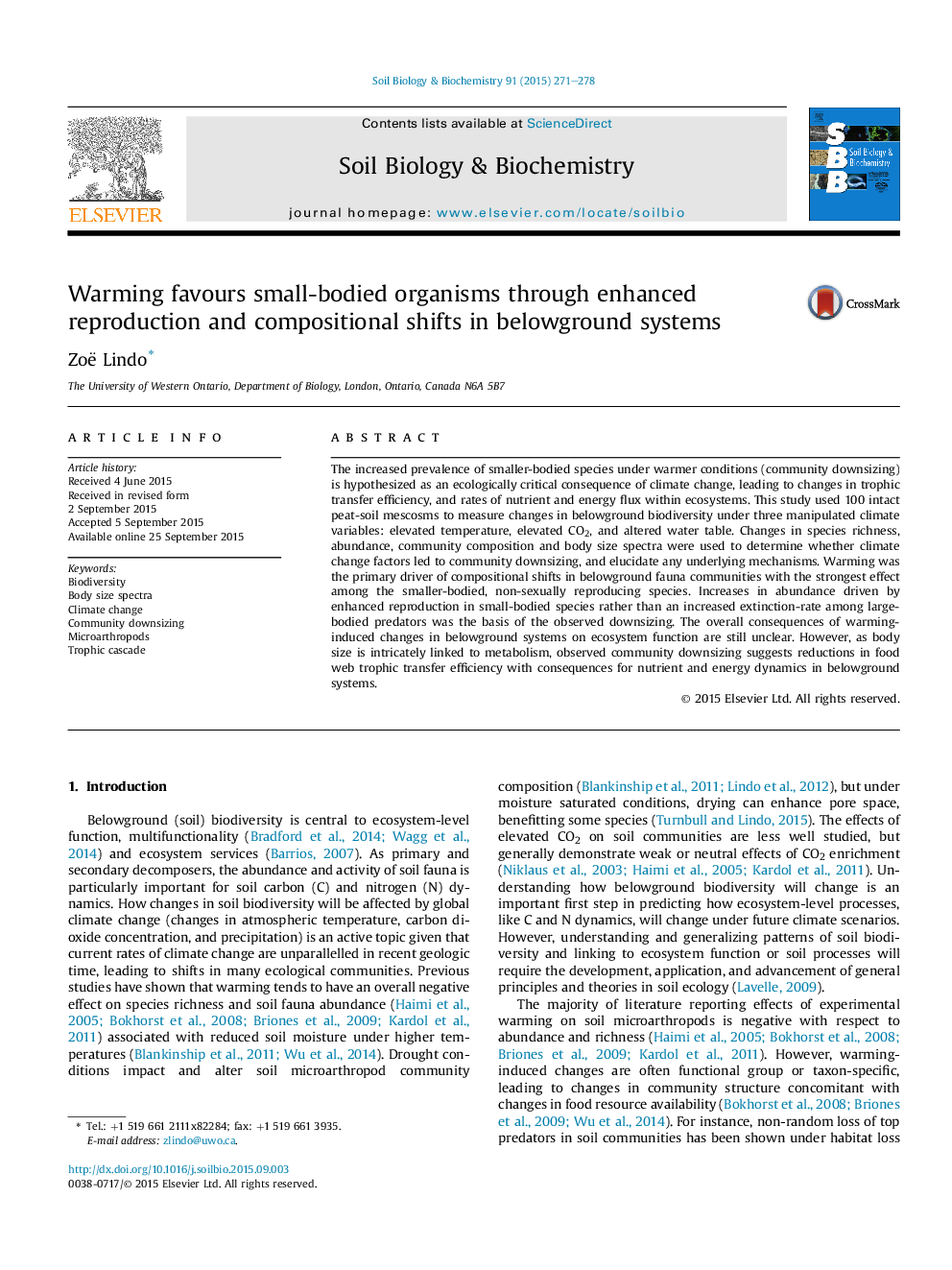| کد مقاله | کد نشریه | سال انتشار | مقاله انگلیسی | نسخه تمام متن |
|---|---|---|---|---|
| 8363846 | 1542593 | 2015 | 8 صفحه PDF | دانلود رایگان |
عنوان انگلیسی مقاله ISI
Warming favours small-bodied organisms through enhanced reproduction and compositional shifts in belowground systems
ترجمه فارسی عنوان
گرما از ارگانیسم های کوچک بدن از طریق افزایش تولید و تغییر ترکیبات در سیستم های زیر زمینی حمایت می کند
دانلود مقاله + سفارش ترجمه
دانلود مقاله ISI انگلیسی
رایگان برای ایرانیان
کلمات کلیدی
موضوعات مرتبط
علوم زیستی و بیوفناوری
علوم کشاورزی و بیولوژیک
دانش خاک شناسی
چکیده انگلیسی
The increased prevalence of smaller-bodied species under warmer conditions (community downsizing) is hypothesized as an ecologically critical consequence of climate change, leading to changes in trophic transfer efficiency, and rates of nutrient and energy flux within ecosystems. This study used 100 intact peat-soil mescosms to measure changes in belowground biodiversity under three manipulated climate variables: elevated temperature, elevated CO2, and altered water table. Changes in species richness, abundance, community composition and body size spectra were used to determine whether climate change factors led to community downsizing, and elucidate any underlying mechanisms. Warming was the primary driver of compositional shifts in belowground fauna communities with the strongest effect among the smaller-bodied, non-sexually reproducing species. Increases in abundance driven by enhanced reproduction in small-bodied species rather than an increased extinction-rate among large-bodied predators was the basis of the observed downsizing. The overall consequences of warming-induced changes in belowground systems on ecosystem function are still unclear. However, as body size is intricately linked to metabolism, observed community downsizing suggests reductions in food web trophic transfer efficiency with consequences for nutrient and energy dynamics in belowground systems.
ناشر
Database: Elsevier - ScienceDirect (ساینس دایرکت)
Journal: Soil Biology and Biochemistry - Volume 91, December 2015, Pages 271-278
Journal: Soil Biology and Biochemistry - Volume 91, December 2015, Pages 271-278
نویسندگان
Zoë Lindo,
